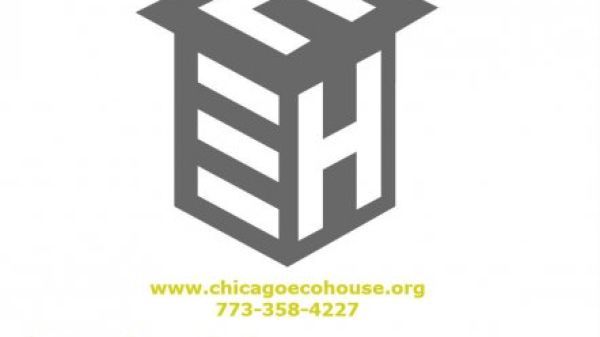From Chicago to Detroit: An Environmental Education Love Story


In 2018, I was fortunate enough to join the brand new ee360 fellows program. We had the privilege of attending a week long professional development conference in Airlie, Virginia, just outside of Washington D.C. to connect with other bright minds in environmental education from around the globe. As I began to get acquainted with the other fellows in attendance, one person quickly stood out from the rest in the group. She led a youth urban agriculture program in Detroit where she tirelessly dedicated herself to creating opportunities for students who normally are not a part of mainstream environmental education conversations. Anita Singh relocated to Detroit from New York City, abandoning a lucrative career on Madison Avenue, so that she could pursue her passion for farming and racial justice in one of America’s most economically depressed cities.
This resonated with me because I was doing similar work on the south side of Chicago where I co-founded the Chicago Eco House, which has the mission of using sustainability to alleviate inner city poverty. Our work centers on converting vacant lots into off grid commercial flower farms that create educational and economic opportunities for local youth and young adults in some of Chicago’s toughest neighborhoods. Knowing that the people who are dedicated to this kind of work and lifestyle are far and few between I made a point of getting to know Anita with the hope that we could collaborate to build a common bridge to further our joint mission.

Living in the inner city can make the best of us gritty and tough as a two dollar steak. Most people do not have to endure the gunshots, blight, fires, and other calamities that unfortunately have become normalized in the hood. So, I totally understood when it took a few days for Anita to warm up to me as trust does not come easily when you’re constantly having to sniff out ulterior motives. When I did get an opportunity to tell her about myself, I later would learn that she was suspicious because she thought my intention of building flower farms on vacant land was a ruse to gobble up cheap land at the expense of the community. This may seem absurd to many outsiders, but the reality is that most people who talk about real estate in the hood usually only have a carpet bagger’s interest. It is very common for people to buy large tracts of land (and lock out the local community in the process) just to wait for gentrification years later so that they can flip their properties for a quick profit.
Being undeterred by Anita’s skepticism, I began to explain to her how Eco House’s purpose is to serve as a vehicle to reverse economic displacement of black and brown people. Being a history major in college, I articulated the long and ugly history that African Americans in particular have with being denied the promise and prosperity that comes from land ownership. Whether it be putting us into forced labor as slaves to enrich others on the cotton and tobacco fields of the South to being denied our 40 acres and a mule at the end of the Civil War to redlining practices in places like Chicago in the 1960s and 1970s to being victimized by the subprime mortgage crisis in the 2000s, African Americans have consistently experienced pain and injustice when it comes to land. So, I’m hell-bent on not repeating this nasty cycle with my own work.
Once Anita began to see that my intention wasn’t to take advantage of the weak she began to warm up to me. She even shared a laugh or two with me sitting next to the creek at Airlie. Now that we were on the same page we could finally get to planning a collaboration that would eventually lead to the founding of the Detroit Eco House. Anita ran a farm called Get Down Farm with her partner Bee, who is a flower farmer. They already had access to some vacant land on the east side of Detroit that they wanted to turn into a flower farm. So we discussed how I could help them set up their flower farm with a solar powered off grid irrigation system (water is VERY expensive in Detroit) and how Bee could come to Chicago and train our staff and youth on flower arranging practices.
After the week-long conference in Airlie, we set up a visit where I went to Detroit to survey their site and to get a feel for their neighborhood. The project seemed to be viable and fortunately NAAEE allotted mini grant funding as part of the ee360 fellows program. We applied as a joint application and NAAEE fully funded our project, which meant we were off to the races! By the end of 2019, we successfully built the first Detroit Eco House site, had a youth skills exchange, and we have local officials in Detroit eagerly waiting for next summer so that they can tour Detroit Eco House and discuss ways to expand the work with Detroit Public Schools in other parts of the city.

Although this is not a typical environmental education story, it does highlight the immense potential of investing in environmental education outside of our conventional methods. To most people, environmental education is seen as an important aspect of educational policy that augments a student’s coursework. However, in places like the south side of Chicago or the east side of Detroit, environmental education is seen as innovative public policy that can spur economic development, reduce urban blight, advance sustainability goals, reduce crime, and close historically racist socioeconomic gaps. Anita and I come from two very proud and quintessentially American Midwestern cities. The grit and sunder of inner city life initially built a wall of mistrust between Anita and I, but the love and passion for environmental education providing a means of freedom for our people forged a common bond that penetrated the hardest of hearts. This from Chicago to Detroit love story is worthy of the entire environmental education community celebrating perhaps with a bouquet of flowers.




Comments
I love this story. It shows us how even when we think our neighbors are different than us, once we dig a little deeper, we realize we want the same things for our communities, and then once you put your powers together, the skies are limitless! Your work definitely provides environmental education opportunities for your community, and as you said, shows how important it is to provide such valuable learning outside the conventional classroom settings.
Quilen, thank you for sharing your story here. Learning more about your work, and the challenges of building community even among like minds, reminds of us all of the need for perseverance and hope.